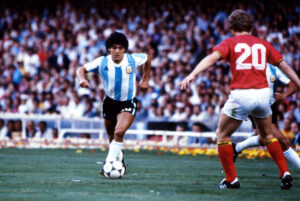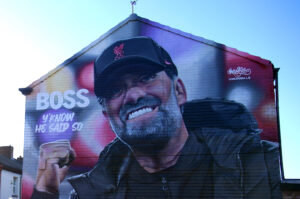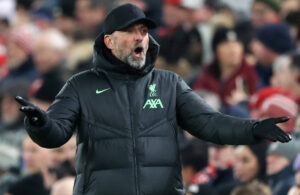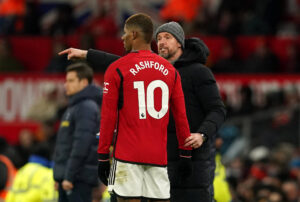Famous Five: after David Ospina’s error for Colombia cost Alexis Sanchez and Chile a place at the World Cup, will the Arsenal team-mates fall out? These five other famous examples of players and even coaches at the same club coming to grief and even occasionally to blows will serve as valuable lessons for him to learn.
2017 is not ending at all well for Alexis Sanchez. First, his proposed move from Arsenal to Manchester City fell apart on August’s transfer deadline day, and now his national side, Chile, have failed to make it to the World Cup next summer. Worse still, the final, decisive error which cost Chile a place at Russia 2018 was made by one of Alexis’ Arsenal team-mates, David Ospina, whose failure to save a simple free-kick enabled Peru to equalise against Colombia and thus steal the South American play-off place. Will the Chilean be able to forgive Ospina? If not, it could be one of football’s most famous falling-outs between team-mates or even club coaches.
Andy Cole and Teddy Sheringham
Even in this age of so-called “super strikeforces”, Manchester United’s array of attackers in their 1999 treble season takes some beating. Unlike Real Madrid, Barcelona and Paris Saint-Germain today, all of whom can boast at least three top attackers, Sir Alex Ferguson’s side contained no fewer than four top-class forwards, with the first-choice pairing of Dwight Yorke and Andy Cole being ably supplemented by Ole Gunnar Solskjaer and Teddy Sheringham.
The feud between Cole and Sheringham was well-known for years, but the reason for it was only finally revealed by Cole more than a decade afterwards, in a 2010 article that he wrote for his column in The Independent newspaper. He explained that it all dated to his debut for England in 1995 against Uruguay, when he came on as a substitute for Sheringham, who at the time was a Spurs player. Cole maintains that Sheringham refused to shake his hand or even speak to him when he came on to the pitch, and consequently he had “hated” him ever since.
When Manchester United subsequently signed Sheringham in 1997 as a replacement for the retiring Eric Cantona, most managers might have dreaded the combination of Cole and Sheringham in the same dressing room. Of course, Sir Alex Ferguson was not “most managers”. Indeed, he actively seemed to thrive on the creative tension or friction that could exist between players on the same team, and ultimately he even fell out with some players himself.
Nevertheless, it is perhaps the greatest testament to his legendary man-management skills that he was able to keep both Cole and Sheringham on-side and contributing to the same collective effort, even if it must be noted that the two players rarely started United games together. That might have been too much even for Fergie to handle.
Lothar Matthäus and Jürgen Klinsmann
Lothar Matthäus and Jürgen Klinsmann may have won the 1990 World Cup together as team-mates, but repeating that success at the 1996 European Championships in England was beyond them. In the six years between those two international tournaments, the two German greats came to loathe each other so much that they were no longer capable of playing in the same team.
Rewind to 1990. At that time, Matthäus’s position in the West Germany team was pre-eminent. He was not only the captain of the side but an international veteran who performed so well in Italy that he was voted the Player of the Tournament. By contrast, Klinsmann was a relative newcomer, having only made his international debut in 1987, and he was certainly not a challenger to Matthäus as the top dog or alpha male in the team.
Indeed, both men were club as well as international team-mates, having starred alongside each other, and their fellow countryman Andreas Brehme, for Inter in Italy. Consequently, when West Germany won the World Cup, Matthäus and Klinsmann scaled the heights together as true team-mates, for both club and country.
Both men left Inter in 1992, with Matthäus immediately returning to Bayern Munich and Klinsmann enjoying spells in France and England before finally rejoining Matthäus at Bayern in 1995. Things did not work out as planned, however, as the two fell out so badly that they could no longer be considered for selection together in the same side. Matthäus endured debilitating injury problems that eventually ruled him out of the European Championship, while Klinsmann, filling the void left by Matthäus, replaced him as Bayern’s on-field leader and duly led them to a UEFA Cup triumph.
Finally, the national coach, Berti Vogts, declared on the eve of Euro 96, “Working together with him [Matthäus] is no longer possible.” Vogts appointed Klinsmann as captain and with Borussia Dortmund’s Matthias Sammer brilliantly replacing the ageing Matthäus as the team’s sweeper, Germany swept to victory and Klinsmann, unlike his old rival Matthäus, claimed the rarest of doubles as both a World Cup and European Championship winner.
Lee Bowyer and Kieron Dyer
Most footballing falling-outs, even most footballing feuds, do not end in on-field punch-ups, especially when the players trading blows are on the same team. However, it does happen occasionally and perhaps the most famous brawl between team-mates was that between Lee Bowyer and Kieron Dyer when they were both playing for Newcastle against Aston Villa in 2005.
No-one was overly surprised that Bowyer was one of the protagonists. Ever since his earliest days with Charlton, he had been a feisty midfielder who easily attracted the loathing of opposition players and fans. Dyer, by contrast, was almost regarded as something of a lightweight. Famously injury-prone, he never seemed capable of remaining on a football pitch long enough to upset or wind up the opposition, let alone one of his team-mates.
On that spring day in 2005, the two players, who were not only in the same team but in the same position of midfield, suddenly started trading punches, to the astonishment of everyone else at St James’s Park. Their team was already 3-0 and a man down after defender Steven Taylor had been shown a red card for handling the ball on the line. Then, as if upset about their inability to lay a glove on the opposition, the two men started laying into each other, until Villa’s Gareth Barry intervened and the referee sent them both off.
Nearly a decade later, Dyer finally revealed the real reason behind the bust-up and it was every bit as petty and childish as their playground-type scuffle had suggested. Apparently, Bowyer had continually demanded the ball from his team-mate and even claimed that Dyer “never” passed to him. When Bowyer asked Dyer why that was, Dyer replied, “The reason I don’t pass to you is because you’re **** basically”. However many other people might have agreed with Dyer’s assessment of Bowyer’s ability, Bowyer himself disagreed, and the rest was utterly embarrassing history, even for a club that is fast approaching a half-century without winning anything.
Raymond Domenech and the Entire France Squad
France may have to win the World Cup next summer to finally remove the bad taste left by the antics of the national team and their coach in South Africa in 2010. That summer, the traditionally fragile relationship between the French national team and the French public finally became completely merde, as the coach, Raymond Domenech, appeared to fall out with his entire squad of players, to the point that they went on strike and refused to play.
Few long-serving international managers have had such contrasting World Cups as Domenech has had. In 2006, he managed to squeeze the last drops out of the truly Golden Generation of Zidane, Henry et al by leading France to the World Cup final, which they might well have won had Zidane not been sent off for headbutting Italy’s Marco Materazzi. Most of the great players who had won the 1998 World Cup and the 2000 European Championships retired afterwards, necessitating a rebuilding job for Domenech and his staff.
Nevertheless, there was still enough talent in the 2010 squad to have justified some French optimism, with Nicolas Anelka and Thierry Henry remaining among the frontline strikers. Unfortunately, it was the famously combustible Anelka who initiated the troubles in South Africa, when he allegedly described Domenech and his coaching ability in less than flattering terms. When Anelka was subsequently dismissed from the squad, the French captain, Patrice Evra, responded by confronting the physical trainer, Robert Duverne, and Domenech had to pull them apart.
Finally, the whole thing became a true French farce when Evra led all his players back to the team bus and they announced that they were going on strike. Although they were eventually persuaded to play in the final group game against the tournament hosts, South Africa, their subsequent 2-1 defeat and elimination in the first round seemed the apt final comment on an utterly disastrous World Cup showing.
Tommy Docherty and Laurie Brown
Sir Alex Ferguson was not the first fellow Scot appointed by Manchester United to try to replace Sir Matt Busby. After the farrago of appointing several internal candidates such as Wilf McGuinness and Frank O’Farrell, in 1972 United finally appointed an outsider, Tommy Docherty, after his impressive stint in the 1960s as the Chelsea manager and a brief period as the caretaker manager of Scotland.
Sharing the same nationality was about all that Busby and Docherty had in common, however, as the statesmanlike Sir Matt was replaced by “The Doc”, who not only failed to win the league but had an affair with the wife of his physiotherapist, Laurie Brown, catapulting United on to the front pages of the national and international press.
In retrospect, it is remarkable that Docherty survived as long as he did as the United manager. Admittedly, he took over an ageing side that was barely a shadow of the great team that had won the European Cup in 1968 and in addition he had to deal with George Best’s increasingly erratic behaviour, both on and off the field. Nevertheless, it was Docherty who was in charge when United suffered the ignominy of being relegated in 1974.
Somehow Docherty survived, rebuilt the side with much younger players and won promotion back to the top flight in 1975. A year later, he led United to the FA Cup Final, but they lost to Second Division Southampton and again “The Doc” seemed set for “the chop”.
It is ironic, therefore, that Docherty’s eventual dismissal from Manchester United followed his greatest triumph with the club, when they beat Liverpool 2-1 in the 1977 FA Cup Final. Only a few short weeks after that Wembley triumph, however, Docherty was finally fired, and not for the on-field failings of his team but for his own off-field behaviour.
It was revealed in the tabloids that Docherty, who was himself married, was having an extramarital affair with Mary Brown, the wife of the club’s physiotherapist, Laurie Brown. That was too much for United, who sacked him with immediate effect and in an absolute firestorm of publicity. Docherty eventually left his own wife, Agnes, and married Mary after she was divorced from Laurie, and the two remain together to this day, leading Docherty to claim years later, and rather poignantly, that he had been sacked “for falling in love”.
Main Photo
Embed from Getty Images






